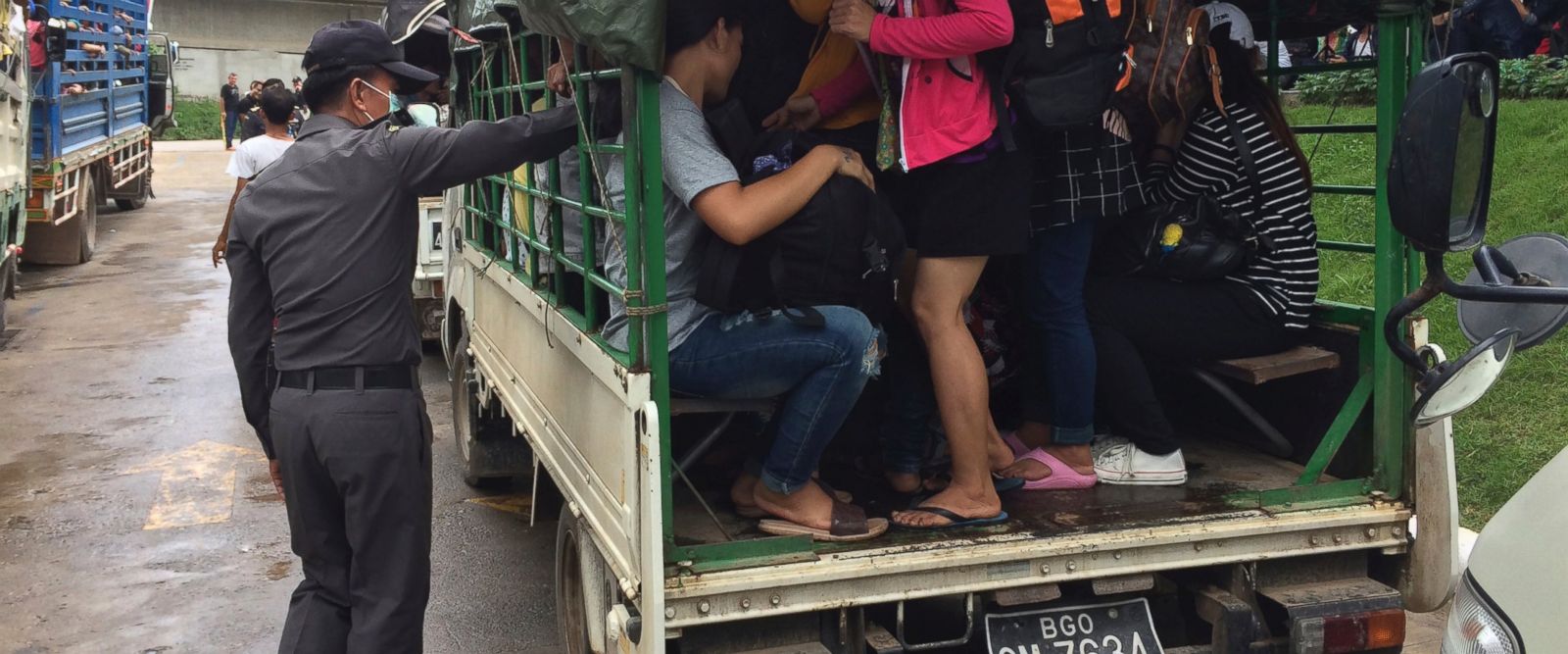Laos: New Thai labor rules send migrant workers packing for home
Fearful that Thailand’s new labor rules will get them into trouble, tens of thousands of migrant workers are returning to neighboring Myanmar, Cambodia and Laos, causing hardship to themselves and their Thai employers.
Labor regulations that took effect June 23 could give foreign workers without proper permits up to five years in prison, while their employers could face fines of up to 800,000 baht ($23,500).
Officials and workers’ advocates estimated Monday that roughly 30,000 workers have returned home since the rules took effect.
Thai Prime Minister Prayuth Chan-ocha, under pressure from industries employing the migrants, says he’ll institute a 120-day extension of the deadline for worker registration.
Thailand has about 2.6 million foreign workers, mostly from its poorer neighbors Myanmar, Cambodia and Laos. Half are estimated to be working illegally. Many work in low-paying or dangerous jobs that Thais are reluctant to take, in fields such as construction, farming and fishing.
Thailand’s Labor Rights Promotion Network, a migrant rights advocate group, estimates that more than 30,000 workers have gone back home and that the number will keep increasing if the government does not come out with measures to reassure workers of their rights and safety.
Police Col. Man Ratanaprateep, based in the northern Thai province of Tak, which borders on Myanmar, said that as of Monday, more than 23,000 workers had crossed back to Myanmar at the province’s Mae Sot checkpoint alone, but others may have gone back at unofficial crossings.
The regulations have caused the loss of 40,000 to 80,000 migrant workers from the construction industry, according to Suwat Liptapanlop, president of the Thai Contractors Association. He did not say how many workers left on their own, or how many were pushed out by nervous employers.
Deputy Prime Minister Pravit Wongsuwan told reporters that the government is likely to invoke Article 44 to extend the registration deadline. Article 44 of the constitution imposed by the military after it seized power in May 2014 gives the prime minister the authority to issue orders overriding any other branch of government to promote public order and unity.
The concerns of workers’ advocates had a different focus.
“We found that many workers were told to leave, some without being paid, by their employers. Now, with such a massive outflow, the government is talking about the grace period,” said Patima Tungpuchayakul of the Labor Rights Promotion Network, which is involved in the protection of migrant workers. “But the damage is already done. Poor migrant workers already are panicking and leaving the country. These are people who can’t afford travel expenses or living without employment.”
She noted that workers who left would face a new round of expenses should they seek to return to work legally, because they would have to come up with payment fees to employment agencies. This could force them to borrow money again, making their labor a way of paying off the debt, a cycle that is known as debt bondage.
“We are still discussing what we can do for these people who are coming back home to the country,” said Myo Aung, a Labor Ministry official in Myanmar. “There are many of them coming in and I think there will be more.”
Cambodia’s embassy in Thailand issued a statement over the weekend urging Cambodian migrant workers to stay calm. It said the embassy and Labor Ministry officials were negotiating with Thai authorities, asking them not to crack down on sites where the Cambodian workers may be working illegally.
At least 1,000 Cambodians were reported to have returned home through eastern Thailand.
There was a mass exodus back home in 2014 of as many as 200,000 Cambodians working in Thailand after the newly installed junta in Bangkok announced plans to crack down on undocumented foreign workers and began deporting some after raids on worksites.
The numbers of those fleeing then swelled as unsubstantiated rumors circulated that Thai authorities had shot dead or beaten several Cambodian workers. Thai authorities denied the rumors and sought to quell concerns about a crackdown, adding that they had plans to systematize migrant labor.
Source: http://abcnews.go.com/International/wireStory/thai-labor-rules-send-migrant-workers-packing-home-48411124


 English
English




